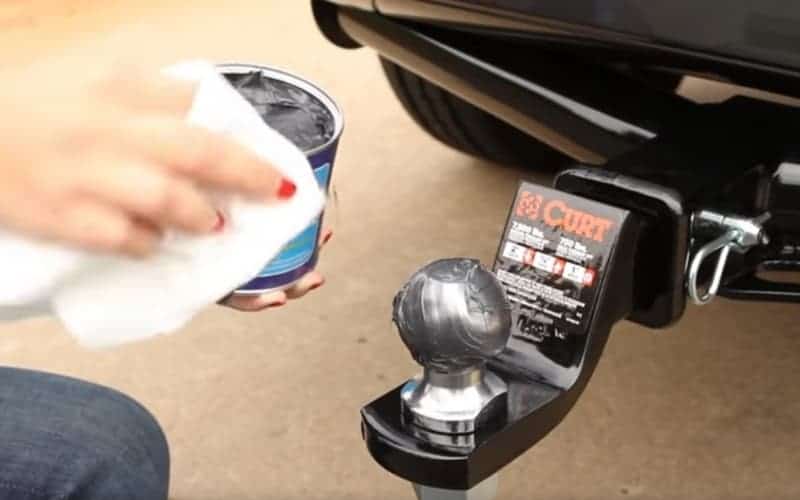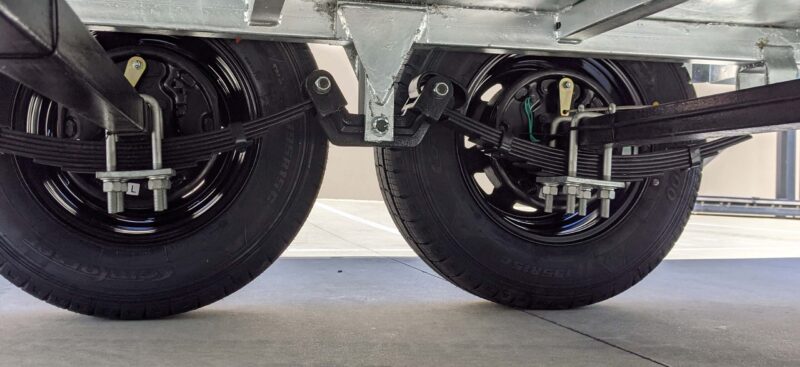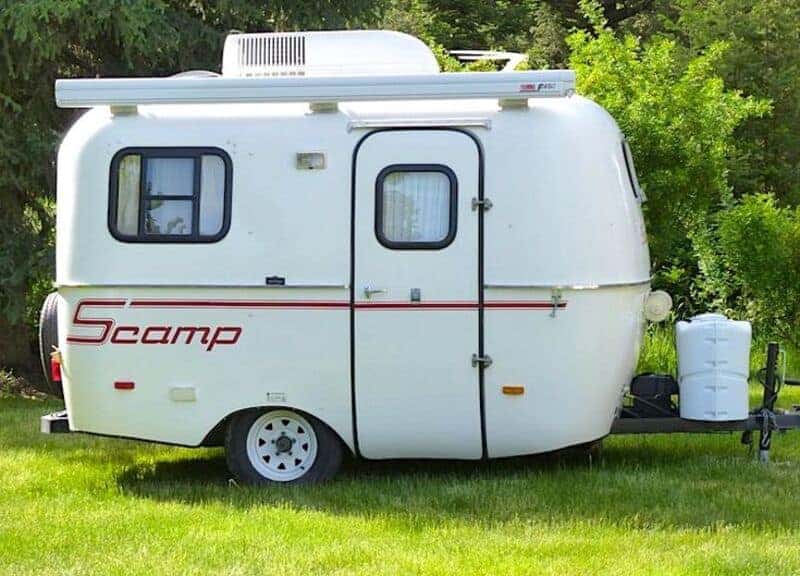If your trailer hitch is stuck on the ball, prepare yourself for the worst. Summon all of your animal instincts, and prepare for curse words, barked shins, back strain, sweat, tears, and possibly blood.
Okay, maybe we’re exaggerating a little bit—but only a little bit. There are several reasons your hitch might be stuck. However, when it comes to removing the hitch, none of those reasons really matter until later. There’s nothing for it but to grit your teeth and get to it.
The thing is, we don’t want your hitch and ball problems to ruin your entire camping trip (something it’s capable of doing).
So, we’re here to recommend some preventative maintenance, some preventative procedures, and some troubleshooting tips for getting the hitch off without breaking any bones.
How to Release a Hitch That’s Stuck on the Ball
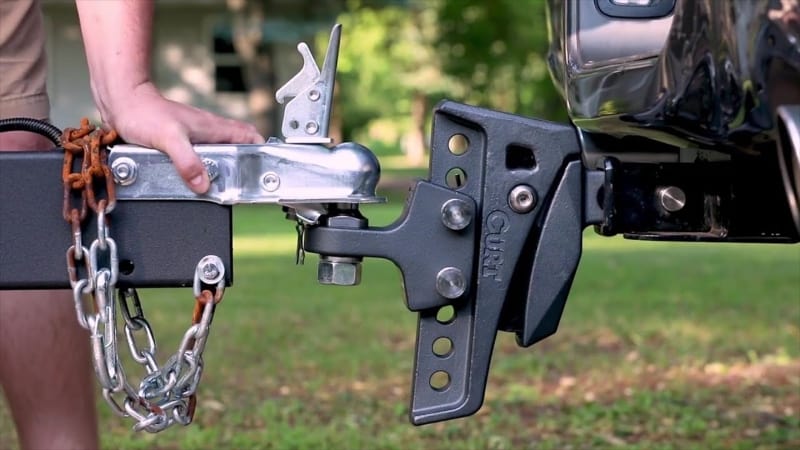
If you’ve ever been here before, you know what’s in store. For those who haven’t, there are several approaches to the problem, all of which are physical to one degree or another.
Before you start throwing things because your stabilizer system is lifting the rear end of your truck, take a step back and check a few things.
First and foremost, your RV needs to be on chocks. Don’t make the horrible mistake of celebrating the hitch losing its grip on the ball before you watch your travel trailer go crashing down the hill.
Next, check and make sure the ball lock is completely open, your weight distribution hitch is open, and your sway bars are out. Wiggle the ball lock and make sure it’s loose.
If it’s tight and immobile, it’s still on there pretty well. At this point, you need to try moving the vehicle but not in the way you think.
- Hop in the cab of your towing vehicle
- Press your foot hard on the brake
- Release the parking brake
- Put the vehicle in neutral
- Pump the brakes, only coming completely off the brake very briefly
- Do not put your foot on the accelerator
- You will feel the truck rocking back and forth slightly
- Press your foot firmly on the brake again
- Put the parking brake back on
- Shift back to Park
- Get out and check the hitch and ball
Seems pretty simple, right? Well, it works most of the time. Pumping the brake and allowing the towing vehicle to move just slightly, is often enough to break the hitch free from the ball. However, if it’s still stuck, a hammer and some WD-40 will do the trick.
What Size Hitch Ball Do You Need?
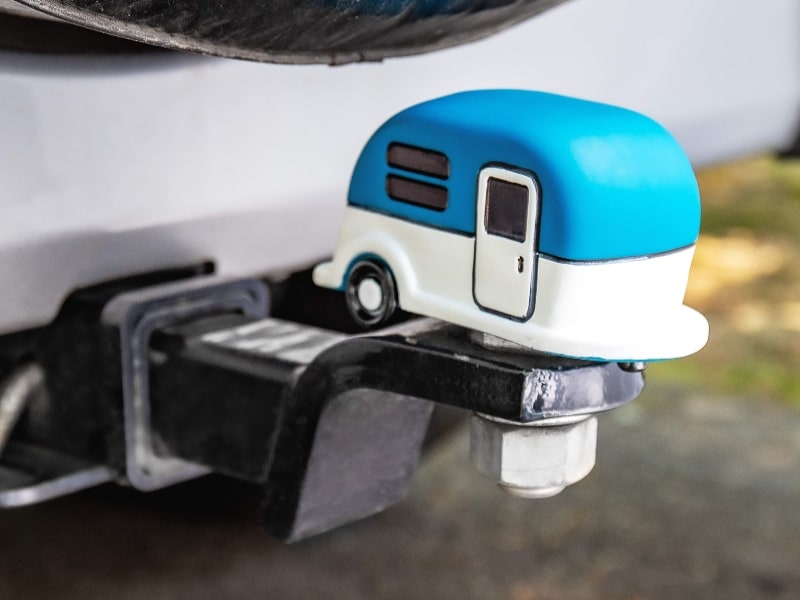
There are standard hitch sizes that you need to know but breaking them down into three categories will help you keep track of what’s what. Think about it like this—light-duty towing, medium-duty towing, and heavy-duty towing.
For the purpose of hauling a travel trailer, those are the three categories we’re looking at.
- Light-Duty Towing: 1 -7/8″ Hitch Ball
- Medium-Duty Towing: 2″ Hitch Ball
- Heavy-Duty Towing: 2 – 5/16″ Hitch Ball
When you’re considering the hitch ball you need to haul your trailer, it’s all about the weight capacity, which ranges from 2,000 lbs to 30,000 lbs. You can also match the coupler to the ball or match the shank to the trailer ball hole.
Having a matching hitch and ball is critical for safely towing your travel trailer!
Fortunately for the consumer, the size is usually stamped on the ball, making identification much easier. A class III hitch is the most popular but just because it’s the most popular doesn’t mean you should make assumptions about your ball and coupler.
A ball that is too small for the coupler will knock around inside, potentially coming loose. The result, bent sway bars and potentially dragging the hitch on the highway.
This is why safety chains are so important. The point is, going with the wrong size will potentially cause a ton of damage.
How to Prevent Your Hitch from Getting Stuck On the Ball?
All you need to do is practice a little preventative maintenance and choose the right size ball to match the coupler and weight capacity.
Both the coupler and the ball are very susceptible to rust. Additionally, both of them remain exposed to the elements constantly. One of the best ways to waterproof them, especially where they connect, is to use grease.
For more info about the proper type of grease to use, check out our article called Should You Grease Your Trailer Hitch Ball or Not?
Not only will this lubricate the hitch and ball, but it will also prevent additional rusting that will eventually make the problem worse. Taking this approach significantly contributes to preventing your trailer hitch from getting stuck on a ball. There are, however, some other factors to consider.
Clean The Ball and Receiver
Before you even bother applying grease, you need to keep both the receiver and ball clean as a whistle. Shine those things up until they look like chrome.
To do this, use sandpaper or a wire brush to clean off all of the visible rust. It usually works best to use fine-grit sandpaper first and follow it up with the wire brush.
The brush will help you get the tight nooks and crannies you can’t get with sandpaper. For even more info, check out our article called How To Stop A Trailer Hitch From Squeaking.
Hitch Pin Hole and Ball Lock Lever
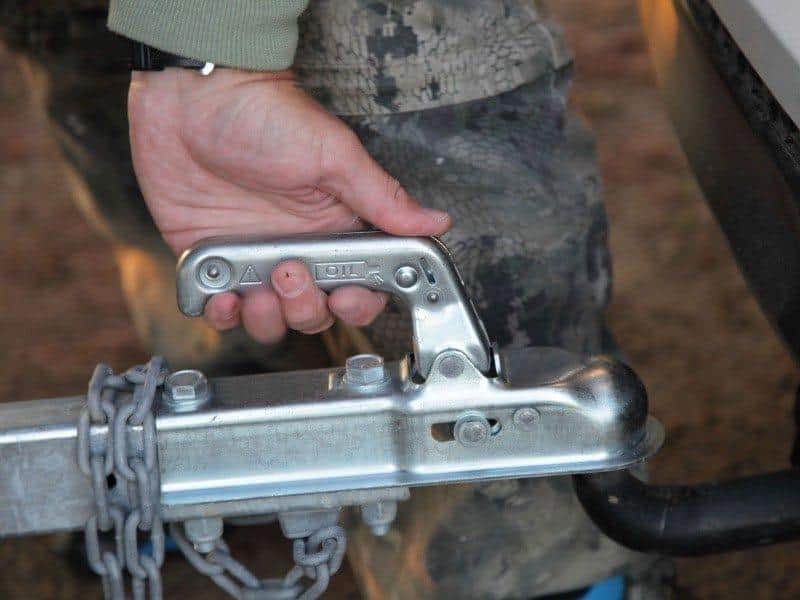
It’s surprising how much these two contribute to getting your trailer hitch stuck on the ball. They aren’t easy to clean, especially since they are so small. Do the best you can by using a wire brush to work your way around and over the hinge and pinhole.
Spray them both down with WD-40 afterward and place a hitch cover over your handiwork. The cover won’t keep out the moisture from the air but it will block the rain.
Park Your Vehicle and RV in the Right Place
First and foremost, try to park your towing vehicle and travel trailer in the most level spot you can find. The less gravity affects your rig the better. You’ll level your RV soon enough anyway.
Make sure you are close enough to the hookups so you don’t have to move again or, even worse, hitch up and move again. Also, do your best to avoid tight spaces and narrow confines. The last thing you need when unhitching is no elbow room.
Do Hitch Balls Have Weight Ratings?
Yes, hitch balls have weight ratings and that brings us back to the three hitch balls. Each one is categorized by size and each one has a weight rating.
- Light-Duty Towing – 1 -7/8″: Up to 3,500 lbs
- Medium-Duty Towing – 2″: 3,500 to 12,000 lbs
- Heavy-Duty Towing – 2 – 5/16″: 6,000 to 30,000 lbs
You’re more than welcome to match your hitch ball to the coupler based on weight ratings. Part of the matching process includes weight ratings, along with matching the sizes of both the hitch and ball.
Mismatching based on weight ratings or size will result in a loose connection or the trailer hitch getting stuck on the ball. Neither is an ideal situation to be in, especially if you’re traveling 55+ mph down the interstate.
Should You Grease Your Hitch Ball?
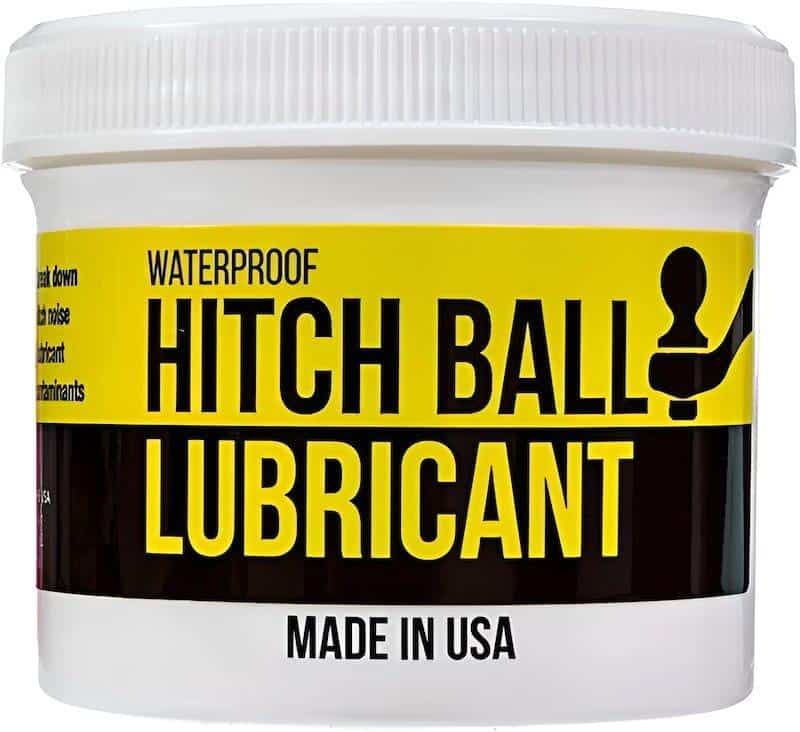
Yes, you should grease your hitch ball unless the thing is so rusty that it’s probably compromised. There is a ton of controversy around the subject, with most opponents pointing to dirt and dust accumulation as primary reasons for avoiding it.
However, there are ways to grease your hitch ball without accumulating anything. Plus, even if you don’t use the right grease, the good far outweighs the bad.
Dry graphite lubricant not only lubricates and protects your hitch ball, but it also resists dirt accumulation.
White Grease Hitch Ball Lube is a dry graphite variant of hitch ball lubes and effectively lubricates without becoming absolutely filthy.
4 FAQs About Releasing a Trailer Hitch That’s Stuck On a Ball
1. Why do trailer hitches get stuck on the ball?
The primary reason your trailer hitch gets stuck on the ball is rust. However, it will also get stuck if you have a mismatched hitch and ball or position your vehicle and travel trailer wrong when you park it.
2. How can you release a stuck hitch from a ball?
Adjusting the position of the vehicle often solves the problem by either breaking the rust hold on it or shifting it into a position that isn’t fighting gravity. Using a hammer to tap the sides of the hitch and WD-40 are also effective secondary measures.
3. How can you prevent your hitch from getting stuck on the ball?
Prevent your trailer hitch from getting stuck on the ball by cleaning and lubricating it. Also, ensure you have the right sizes, and park on level ground before you get out.
4. How to tell what size hitch ball you need?
You tell what size hitch ball you need by matching the size of the ball with the coupler or the weight rating. The size of the ball is stamped directly on it, which makes your job easier.
Final Thoughts About Releasing A Trailer Hitch That’s Stuck On A Ball
Hopefully, you’ll find over a thousand words of inspiration here. At the end of the day, we want you to avoid ruining your evening by dealing with a catastrophically stuck hitch.
The good news is a stuck hitch is avoidable with the proper maintenance, preparation, and preventative actions. No one wants to start off their camping trip nursing a bruised shin or a banged-up funny bone.
As with most of the products and devices in our lives, take care of your hitch and ball and they will take care of you.
Related Reading:
1. How To Stop A Trailer Hitch From Squeaking
2. Does Travel Trailer Length Include The Hitch?
3. Should You Grease Your Trailer Hitch Ball or Not?
4. A Closer Look at Andersen Ultimate Hitch Failures and Problems
About the Author:
Thomas Godwin is a full-time freelance writer with a BFA in Creative Writing, a U.S. Marine, and an avid outdoorsman.
When he’s not writing, he’s raising chickens and Appleyard ducks. Thomas also constructs teardrop campers (attempting to anyway) and kayaks the Blackwater River with his wife, two daughters, and his Dobermans.


